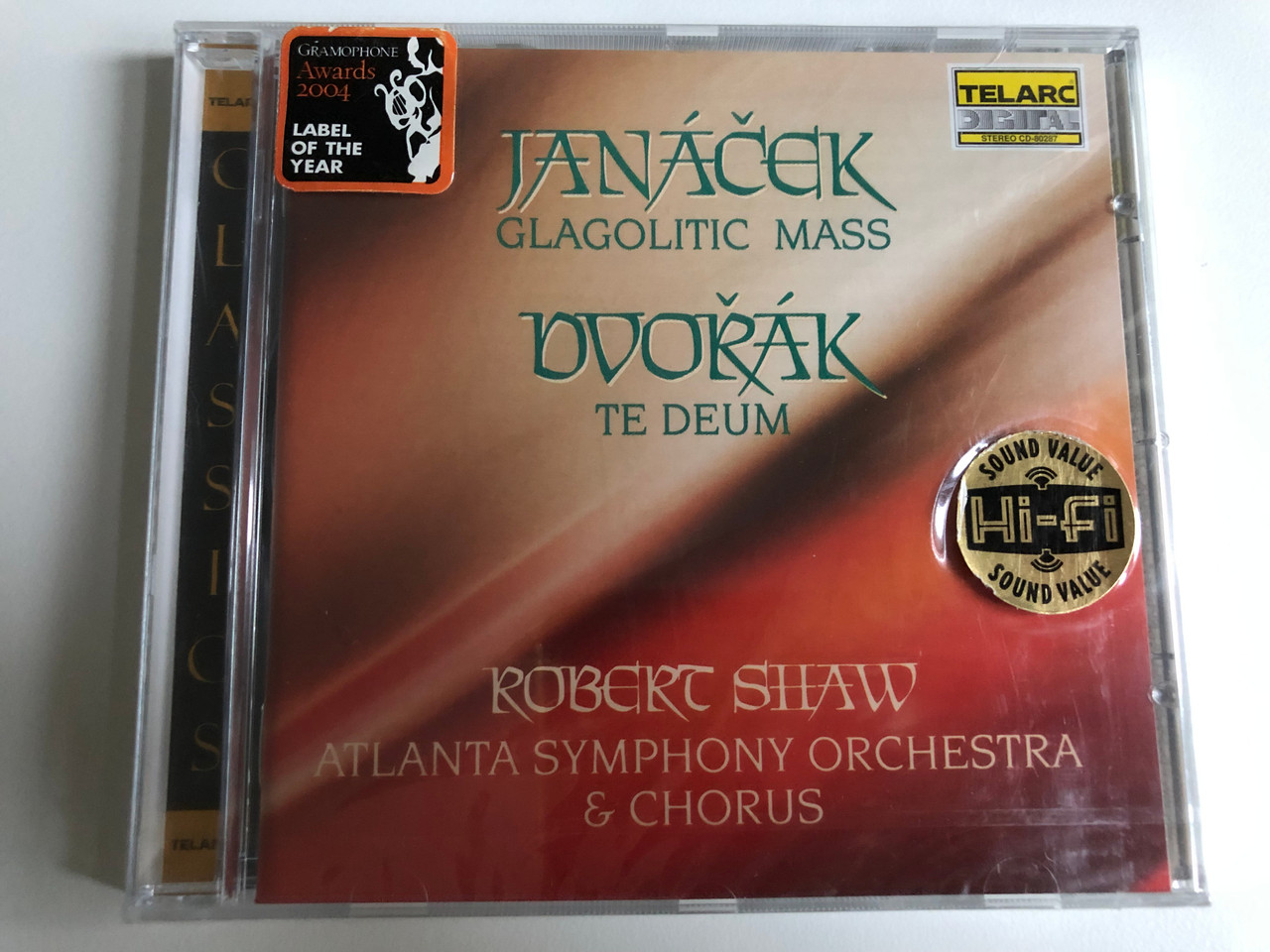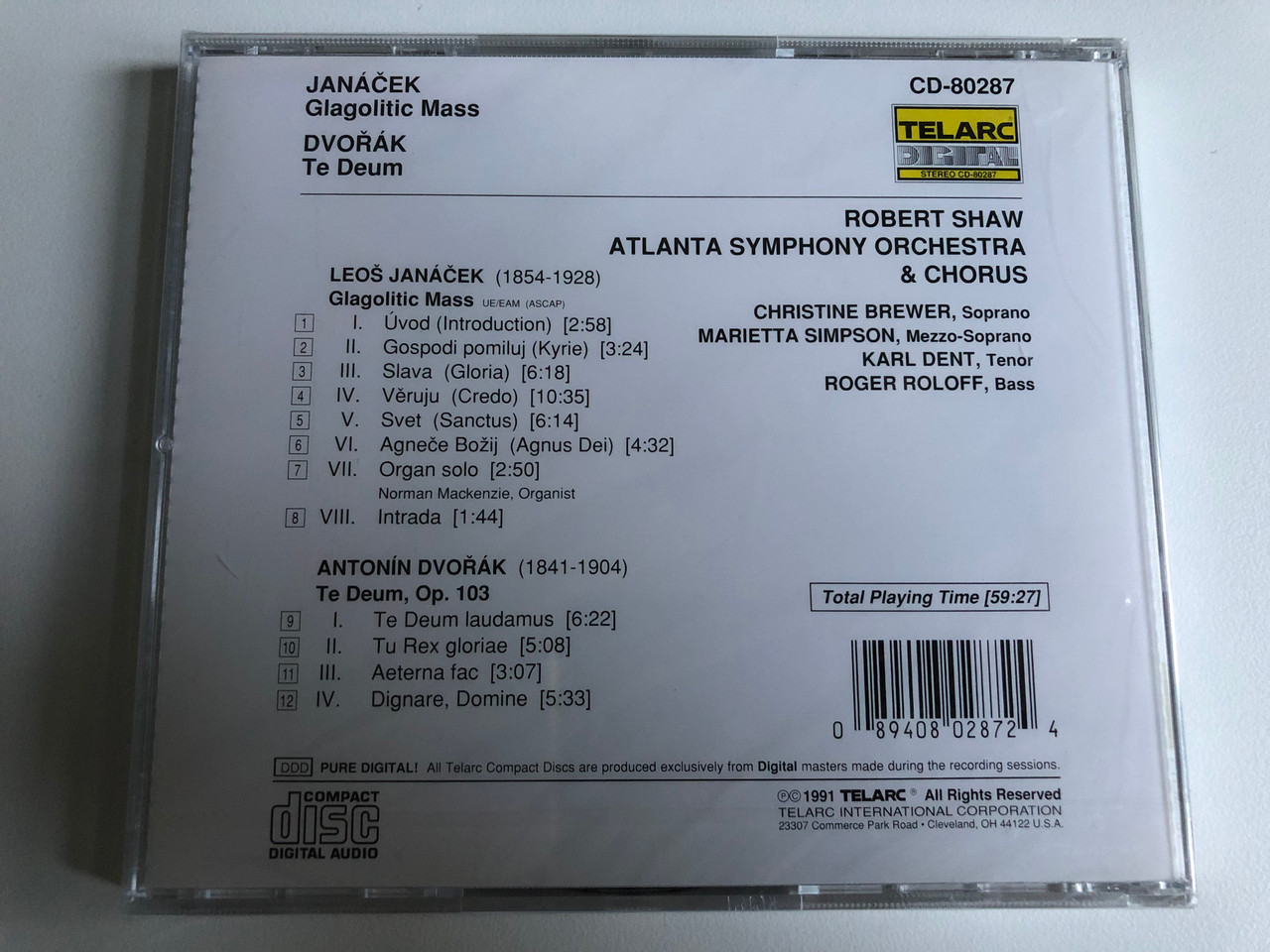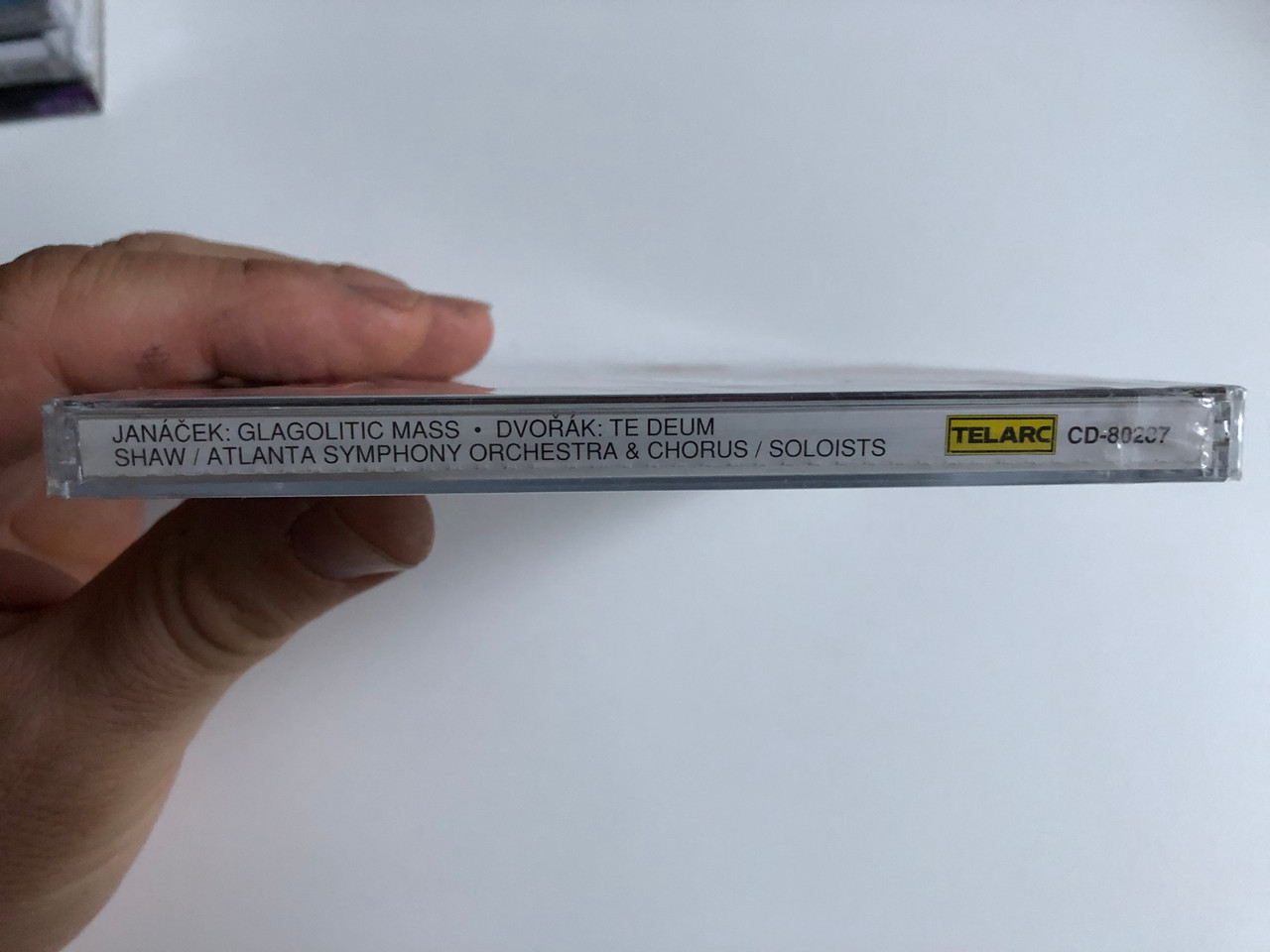Janáček - Glagolitic Mass; Dvořák - Te Deum / Robert Shaw, Atlanta Symphony Orchestra & Chorus / Telarc Audio CD 1991 / CD-80287
UPC 089408028724
Leoš Janáček (Czech: [ˈlɛoʃ ˈjanaːtʃɛk], baptised Leo Eugen Janáček; 3 July 1854 – 12 August 1928) was a Czech composer, musical theorist, folklorist, publicist, and teacher. He was inspired by Moravian and other Slavic musics, including Eastern European folk music, to create an original, modern musical style.
Until 1895 he devoted himself mainly to folkloristic research. While his early musical output was influenced by contemporaries such as Antonín Dvořák, his later, mature works incorporate his earlier studies of national folk music in a modern, highly original synthesis, first evident in the opera Jenůfa, which was premiered in 1904 in Brno. The success of Jenůfa (often called the "Moravian national opera") at Prague in 1916 gave Janáček access to the world's great opera stages. Janáček's later works are his most celebrated. They include operas such as Káťa Kabanová and The Cunning Little Vixen, the Sinfonietta, the Glagolitic Mass, the rhapsody Taras Bulba, two string quartets, and other chamber works. Along with Dvořák and Bedřich Smetana, he is considered one of the most important Czech composers.
The Glagolitic Mass (Czech: Glagolská mše, Church Slavonic: Mša glagolskaja; also called Missa Glagolitica or Slavonic Mass) is a composition for soloists (soprano, contralto, tenor, bass), double chorus, organ and orchestra by Leoš Janáček. The work was completed on 15 October 1926 and premiered by the Brno Arts Society, conducted by Jaroslav Kvapil, in Brno on 5 December 1927. Janáček revised the mass the next year. The Glagolitic Mass is one of the most remarkable and important musical religious works of the twentieth century.
The Glagolitic alphabet was an early Slavic alphabet, the predecessor of the modern Cyrillic alphabet. In Yugoslavia, the Catholic Church gave permission for the Roman Rite liturgical Mass to be celebrated in Old Church Slavonic at a time when such liturgies were typically only permitted to be in Latin, resulting in the Glagolitic Use Mass.
| Label: |
Telarc – CD-80287 |
|---|
| Format: |
CD, Album
|
|---|
| Country: |
US |
|---|
Released:
|
1991 |
|---|
| Genre: |
Classical |
|---|
| Style: |
Romantic, Modern |
|---|
Tracklist:
| |
|
Glagolitic Mass
Composed By – Leoš Janáček
|
| 1 |
|
I. Úvod = Introduction |
2:58 |
| 2 |
|
II. Gospodi Pomiluj = Kyrie |
3:24 |
| 3 |
|
III. Slava = Gloria |
6:18 |
| 4 |
|
IV. Věruju = Credo |
10:35 |
| 6 |
|
Vi. Agneče Božij = Agnus Dei |
4:32 |
| 8 |
|
VIII. Intrada |
1:44 |
| |
|
Te Deum, Op. 103
Composed By – Antonín Dvořák
|
| 9 |
|
I. Te Deum Laudamus |
6:22 |
| 10 |
|
II. Te Rex Gloriae |
5:08 |
| 12 |
|
IV. Dignare, Domine |
5:33 |
- Bass Vocals – Roger Roloff
- Choir – Atlanta Symphony Chorus
- Conductor – Robert Shaw
- Mezzo-soprano Vocals – Marietta Simpson
- Orchestra – Atlanta Symphony Orchestra
- Soprano Vocals – Christine Brewer
- Tenor Vocals – Karl Dent





























